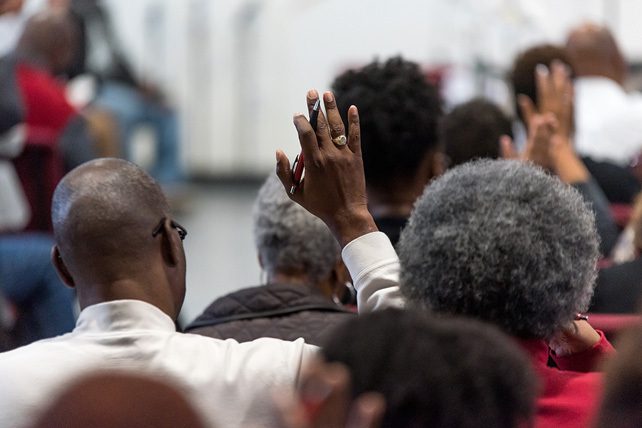Life-Shaping Mentorship
Several characteristics of the Black Church set it apart and make it a worthy example for other faith bodies. For example, mentorship has always been a cornerstone of African American churches. It serves to develop strong leaders, upstanding citizens, and spiritual champions. But mentorship isn’t limited to formal programs or titles; it’s woven into the entire fabric of church life. In the Black Church, mentoring goes beyond instruction; it’s a shared journey of faith, wisdom, and mutual support.
Black congregations intentionally address the needs of every generation—from young children to seniors. Through tailored programs and activities, churches provide meaningful opportunities for connection and growth. Through relationships and shared experiences, seasoned leaders invest in others, cultivating faith and helping people live out their God-given purpose.
During my 20 years serving alongside Bishop Charles E. Blake Sr. at West Angeles Church of God in Christ, I had the privilege of experiencing exemplary mentorship firsthand. He modeled bold vision by investing in emerging leaders, challenging countless individuals to innovate and expand the ministry. As part of this experience, I worked closely with Elder Marion Green, who served as assistant pastor for nearly 40 years. His steady presence and thoughtful approach to pastoral care gave me invaluable insight into leadership traits such as humility, patience, and compassion. Serving with both men offered rich perspective on how visionary leadership and relational care together form the foundation for effective ministry.
Churches such as First Baptist Church of Glenarden in Upper Marlboro, Maryland—home to more than 11,000 active members—exemplify this same ethos. Under the leadership of Senior Pastor John K. Jenkins Sr., the congregation has built a culture of ongoing discipleship. Every member—whether clergy, executive, or layperson—is encouraged to mentor and disciple others. This intentional focus on bettering lives and nurturing leaders enriches members’ spiritual lives while creating remarkable church growth and impact.
Worship and Storytelling
In the Black Church, storytelling is at the heart of worship, bridging Scripture and lived experience. Stories transform faith into something deeply personal, rooting the gospel in the realities of life and offering hope and strength. Pastors craft sermons that connect biblical narratives to modern-day challenges, while congregants share testimonies of perseverance and triumph. These practices honor the oral tradition of the African American community, linking generations through shared wisdom and faith.
The Black Church, rooted in centuries of survival and liberation, uses storytelling to make abstract theology practical for worshipers. In the process, the gospel becomes deeply relevant and enriching to members’ struggles and victories.
Hospitality and Fellowship
Another cornerstone of life in the Black Church is hospitality. Leaders and congregants work to create a sense of family where everyone belongs. As a child, I experienced this firsthand. During meals after services or on special occasions, everyone—from first-time visitors to longtime members—was welcomed at the table. These gatherings reminded us that the church is more than a place of worship; it’s a community that sees, values, and loves people.
In an increasingly fragmented world, the hospitality of Black churches teaches an essential truth: Ministry isn’t limited to dynamic preaching or innovative programs. Fellowship times, new-member gatherings, and events such as church anniversaries intentionally build a family-like community. By focusing on emotional, social, and spiritual well-being, Black churches embody a holistic ministry that transforms lives. In doing so, they fulfill their mission to reflect Christ’s love, offering spaces of belonging in an often-isolating world.
Empowerment Through Education
Education is also traditionally central to the ministry of Black churches, reflecting a commitment to equipping individuals and uplifting communities. From secret schools during slavery, where people taught literacy in defiance of oppressive laws, to the founding of many Historically Black Colleges and Universities (HBCUs) within Black churches, these congregations have consistently championed education as a pathway to opportunity.
In larger congregations, structured programs guide students toward college and careers while molding their faith. Smaller churches may lack formal programs yet still prioritize education through committed members, many of whom are educators. Blending professional expertise with spiritual guidance, these congregants create support networks that help students thrive.

